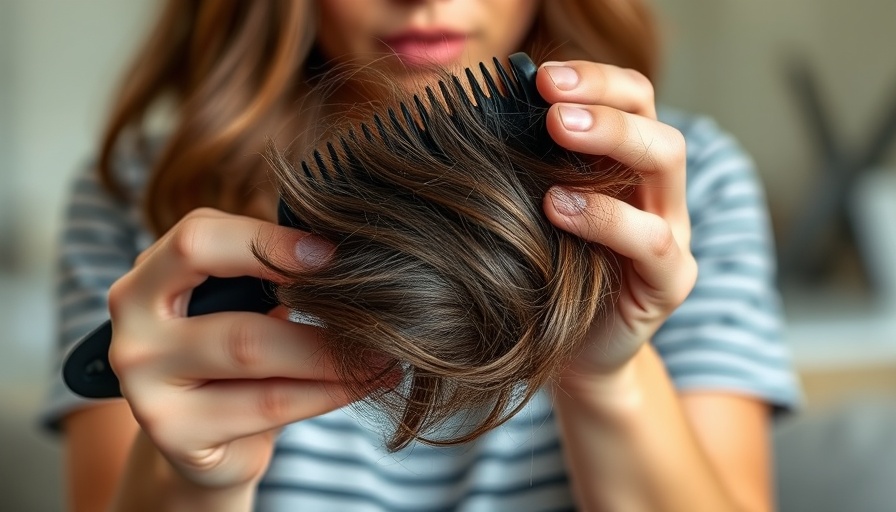
Understanding Hair Thinning and Its Causes
Thinning hair can often feel like an unwelcome guest, arriving unexpectedly and taking residence in our lives. You might wake up one morning and notice more strands on your pillow or see a widening part in your hair. For many, this can signal a genetic predisposition to conditions like androgenetic alopecia, which is hereditary. However, it's not only your genes that can play a role in hair health. Factors such as stress—both emotional and environmental—can disrupt the natural growth cycle of your hair, leading to increased shedding.
Moreover, hormonal fluctuations during life stages such as pregnancy or menopause can significantly influence hair thinning. Diet also emerges as a crucial element; a nutrient-poor regimen may lack the essential vitamins and minerals, like iron and biotin, that are necessary for robust hair structure. Without these nutrients, your hair becomes weak and prone to breakage, particularly when combined with damaging habits.
The Habits Harming Your Hair Health
Each day, many of us engage in actions that unknowingly promote hair damage. From styling routines that involve excessive heat exposure to tight hairstyles that cause stress to the hair shaft, our everyday habits can lead us down a path of thinning hair. Even the washing technique matters; using hot water and rough towel drying can cause significant harm. Additionally, ignoring proper scalp care by letting product build-up or failing to cleanse effectively may stifle hair growth by clogging follicles.
Stress is another insidious factor contributing to the thinning process. When we experience chronic stress, our body releases cortisol, which can push more hair follicles into a shedding state. If you've noticed a decrease in hair volume during particularly stressful times, this might very well explain it.
Starting from the Scalp: The Foundation of Healthy Hair
To address the issue of thinning hair, we must start at the very beginning: the scalp. Selecting a shampoo specifically formulated for thinning hair is a critical initial step. Such shampoos not only cleanse but also infuse the scalp with essential nutrients needed for healthy hair growth. Look for shampoos containing key ingredients like keratin or biotin that work to fortify hair strands and encourage healthy growth.
Don't forget to be consistent; switching hair care products will not yield immediate results. But over time, you may notice a significant change in both scalp health and hair appearance. Additionally, incorporate scalp massages into your routine. This not only feels good but also increases blood flow to the scalp, populating the area with important nutrients and promoting growth.
Emphasizing Scalp Health: Why It Matters
Your scalp acts as the foundation for your hair, and a healthy scalp is crucial for fostering strong hair. If your scalp is oily, flaky, or irritated, hair growth could be significantly stunted. Scalp care thus deserves serious attention. Regular scalp cleansing helps maintain a clean environment for hair growth while also combating issues like dryness or irritation that could result in thinning.
Incorporating practices like gentle exfoliation and using milder hair products can greatly benefit the overall health of your scalp, creating a more hospitable condition for hair to flourish.
Building Awareness Among Patients
As a concierge medical practice owner, sharing vital hair health information with your patients not only fosters a stronger patient relationship but also establishes your practice as a trusted source of wellness knowledge. Educate your patients on the nutritional needs essential for hair vitality and encourage healthier hair practices.
Engage patients with informational sessions on the importance of scalp health, as addressing these concerns not only uplifts their confidence but reflects positively on your practice's commitment to overall well-being. Position yourself as an advocate for holistic health, connecting the dots between physical health and emotional confidence.
 Add Row
Add Row  Add
Add 




Write A Comment